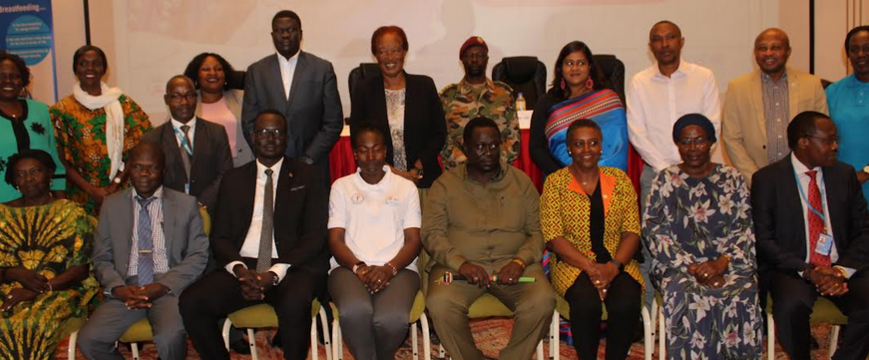The Government of South Sudan on Tuesday disclosed plans to approve 6 months of compulsory maternity leave for all working mothers across the country.
Speaking during an awareness campaign in Juba on Tuesday, Hussein Abdelbagi Akol, the vice president in charge of the service cluster, said the government is working to ensure female public servants enjoy up to six months of paid maternity leave.
“First, I have to make sure that all the mothers who are breastfeeding are helped fully,” he said, “I direct my minister to table this issue in the cluster meeting such that we can forward it to the council of ministers such that we ensure they are given enough time for breastfeed.”
For her part, Health Minister Yolanda Awel Deng urged mothers to exclusively feed infants on breast milk for the first six months.
“Breastfeeding is vital for the health and well-being of both mother and child,” Awel said. “For the child, it is the beginning of their lives, and for the mother it is also helpful for your body because it regulates your hormones.”
Meanwhile, Hamida Lasseko, UNICEF’s Representative in South Sudan, said exclusive breastfeeding is also the most defensive weapon in a mother’s arsenal to protect her child from malnutrition.
“As we all know, breastfeeding protects infants from life-threatening infections, supports brain development, prevents chronic childhood and maternal illnesses and reduces the healthcare cost, and supports a healthy population and workplace,” Lasseko said.
An infant exclusively breastfed during the first six months of their life receives the most nutrient-rich foods through breast milk, which provides optimum health benefits and ensures their survival and adequate physical growth and cognitive development, according to UNICEF.
South Sudan has made commendable progress in the past decade and levels of exclusive breastfeeding have increased from 45 percent in 2010 to 68 percent in 2020.
Three out of every ten newborns remain deprived of their right to a healthy start and miss appropriate nutrition in the first six months of life.
Breastfeeding is the best way to prevent infant morbidity, mortality, and malnutrition to attain optimal growth and development.
Exclusive breastfeeding up to six months and complementary feeding after six months, along with continued breastfeeding until a child turns two years old, helps build immunity and protects them against common childhood illnesses.




